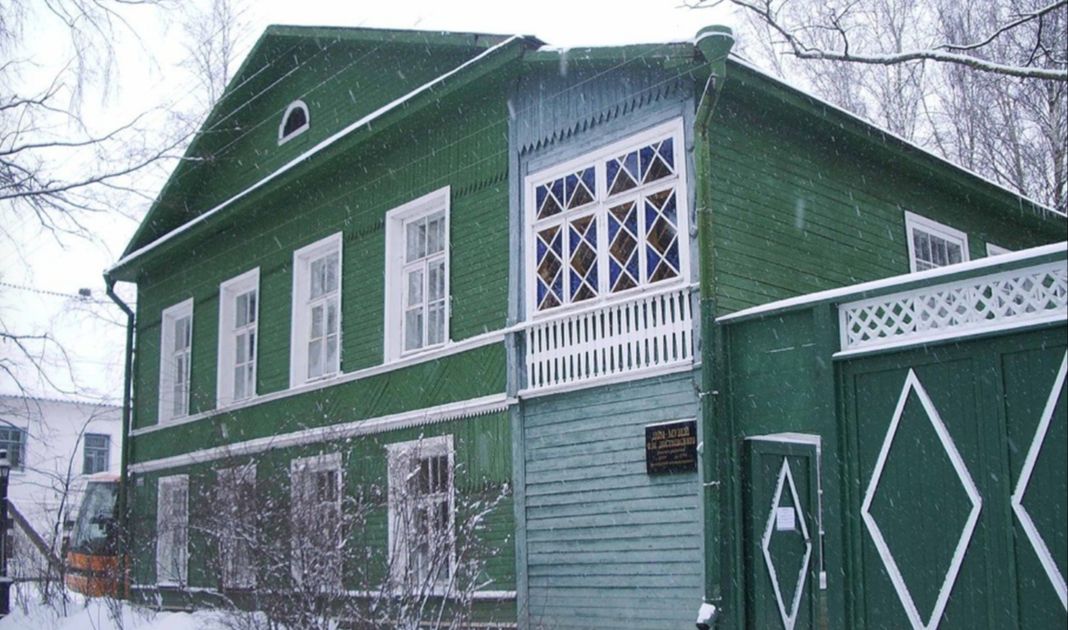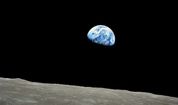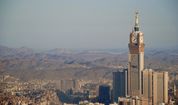Brothers Karamazov as a geopolitical novel

Dostoyevsky’s house (wikimedia.org)
The River Polist has its source at Lake Polisto in the western part of the Valdai Hills (about 400 km east of Riga). It becomes navigable at Staraya Russa (a sleepy former timber rafting hub) shortly before flowing north into the River Lovat, near its mouth at Lake Ilmen. On the north side of Lake Ilmen is the historic city of Novgorod, 200 km south of St. Petersburg and 500 km north-west of Moscow.
As well as the Polist (which eventually drains into the Baltic Sea), the Valdai Hills are also home to the sources of the Volga (which drains into the Caspian Sea) and the Dnieper (which drains into the Black Sea). So when Russians imagine ‘their’ core geography as a land power, it’s one of multiple rivers, flowing in multiple directions, covering a vast, expansive territory. It seems very unlikely that the increasingly influential Valdai Discussion Club, established in 2004, was not named with this geographical allusion in mind.
The novelist Fyodor Dostoevsky had a country house deep in the heart of Russia, at Staraya Russa on the Polist, and it was here that he wrote and set the famous Brothers Karamazov (1878-1880), although the Optina Monastery (located 650 km south-east of Staraya Russa, i.e. 250 km south of Moscow) also features prominently in the ‘world’ of Brothers Karamazov. In other words, it seems that Dostoevsky in his last novel – published shortly before his death – may have been consciously attempting to write the “Great Russian Novel”.
Reading Brothers Karamazov as a geopolitical novel, we need to understand that St. Petersburg was a place of great connectivity with the outside world (i.e. Western Europe) and that the ideas emanating from the Russian capital into the Russian countryside are “alien” ideas, developed in the West over the course of 300 years and introduced almost instantly in a society that wasn’t ready for them. The famous idea is of course that of Ivan (the middle brother and a Petersburg-educated intellectual), summarised (dismissively) here by the divinity student Rakitin: Нет бессмертия души, так нет и добродетели, значит, всё позволено. “If there’s no immortality of the soul, then there’s no virtue, and everything is lawful.”
When reading Brothers Karamazov as a geopolitical novel, we are not so interested in the ethical-moral side of this problematic statement as in the fact that it is uttered within the sanctuary walls of the monastery (the furthest removed symbol of ‘Russian-ness’) and – as mentioned above – that it is a “Western” idea. Ivan’s thoughts develop throughout the novel, culminating in what Jordan Peterson has called “the best argument for atheism that’s ever been written.”
Of more interest in terms of the geopolitical-civilisational reading is the collectivist-conservative critique of “freedom” as eloquently expressed through the darkly prophetic thoughts of the Church Elder (starets), Father Zosima:
Посмотрите у мирских и во всем превозносящемся над народом божиим мире, не исказился ли в нем лик божий и правда его? [Look at the worldly and all who set themselves up above the people of God, has not God’s image and His truth been distorted in them?]
У них наука, а в науке лишь то, что подвержено чувствам. [They have science; but in science there is nothing but what is the object of sense.]
Мир же духовный, высшая половина существа человеческого отвергнута вовсе, изгнана с некиим торжеством, даже с ненавистью. [The spiritual world, the higher part of man’s being is rejected altogether, dismissed with a sort of triumph, even with hatred.]
Провозгласил мир свободу, в последнее время особенно, и что же видим в этой свободе ихней: одно лишь рабство и самоубийство! [The world has proclaimed the reign of freedom, especially of late, but what do we see in this freedom of theirs? Nothing but slavery and self-destruction!]
Ибо мир говорит: «Имеешь потребности, а потому насыщай их, ибо имеешь права такие же, как и у знатнейших и богатейших людей. Не бойся насыщать их, но даже приумножай» [For the world says: “You have desires and so satisfy them, for you have the same rights as the most rich and powerful. Don’t be afraid of satisfying them and even multiply your desires.”]
— вот нынешнее учение мира. [That is the modern doctrine of the world.]
В этом и видят свободу. [In that they see freedom.]
И что же выходит из сего права на приумножение потребностей? [And what follows from this right of multiplication of desires?]
У богатых уединение и духовное самоубийство, а у бедных — зависть и убийство, ибо права-то дали, а средств насытить потребности еще не указали. [In the rich, isolation and spiritual suicide; in the poor, envy and murder; for they have been given rights, but have not been shown the means of satisfying their wants.]
Уверяют, что мир чем далее, тем более единится, слагается в братское общение тем, что сокращает расстояния, передает по воздуху мысли. [They maintain that the world is getting more and more united, more and more bound together in brotherly community, as it overcomes distance and sets thoughts flying through the air.]
Увы, не верьте таковому единению людей. [Alas, put no faith in such a bond of union.]
Понимая свободу как приумножение и скорое утоление потребностей искажают природу свою, ибо зарождают в себе много бессмысленных и глупых желаний, привычек и нелепейших выдумок. [Interpreting freedom as the multiplication and rapid satisfaction of desires, men distort their own nature, for many senseless and foolish desires and habits and ridiculous fancies are fostered in them.]
Живут лишь для зависти друг к другу, для плотоугодия и чванства. [They live only for mutual envy, for luxury and ostentation.]
Иметь обеды, выезды, экипажи, чины и рабов-прислужников считается уже такою необходимостью, для которой жертвуют даже жизнью, честью и человеколюбием, чтоб утолить эту необходимость, и даже убивают себя, если не могут утолить ее. [To have dinners, visits, carriages, rank and slaves to wait on one is looked upon as a necessity, for which life, honor and human feeling are sacrificed, and men even commit suicide if they are unable to satisfy it.]
У тех, которые небогаты, то же самое видим, а у бедных неутоление потребностей и зависть пока заглушаются пьянством. [We see the same thing among those who are not rich, while the poor drown their unsatisfied need and their envy in drunkenness.]
Но вскоре вместо вина упьются и кровью, к тому их ведут. Спрашиваю я вас: свободен ли такой человек? [But soon they will drink blood instead of wine, they are being led on to it. I ask you, is such a man free?]
There is a strong case for reading this passage not merely as a universal expression of conservatism-in-general but as a specifically “Slavophile” commentary on the West and the spread of Western influences in Russia. In an entertaining although perhaps slightly disjointed December 2017 interview with RT, the controversial philosopher-sociologist Aleksandr Dugin states that “the basis of modern Western civilisation is individualism.” When interrupted by the interviewer, who says that the United States has the largest number of volunteers in the world, Dugin responds: “volunteering and collective identity are completely different things. … If you are an individualist, you can decide by yourself how to behave: either to help others or to concentrate on your own business, the decision is taken on the level of the individual. … In Russian tradition, we had always completely different anthropology. Before the Revolution, we considered – our understanding of what is man was a result of our understanding [of] what is the church. So the man was the part of the whole. In the communism, the same was secularised. And. That. Defines. Our. Psychology. So we are dealing with collective anthropology, where the collective is before the…” At this point, he is interrupted again but he’s made his point and we can see the thread going back to Zosima (via Stalin).
Within the text of Brothers Karamazov itself, the most interesting line is when we hear the oldest brother Dmitri, talking wildly to the youngest brother Alyosha towards the end of the novel about his hopes of escaping to America only to one day to Russia: Россию люблю, Алексей, русского бога люблю, хоть я сам и подлец! Да я там издохну! [I love Russia, Alexey, I love the Russian god, even though I myself am a scoundrel! Yes, I’ll die there!].
George Barros writes in an August 2019 piece for Providence Magazine (https://providencemag.com/2019/08/fyodor-dostoevsky-russian-god-faith-christianity-brothers-karamazov-demons/) about how “Dostoevsky’s Russian God concept is instrumental for a holistic understanding of Russian religious identity, which is best understood through the historical nexus of Russian orthodoxy, nationalism, and autocracy, that was characteristic of Russia for most of the nineteenth century and increasingly characteristic of Russia today.” All that needs to be added here is Dugin’s remark that “in the communism, the same was secularised.”
And it seems an especially relevant theme at the moment, what with Russia being spoken of in January 2020 in the Global Affairs in Russia journal as “an international conservative power” (https://eng.globalaffairs.ru/articles/russias-conservative-power/) and of course in the context of Vadim Tsymburski’s “Island Russia” concept, under much discussion at the moment here at Strategy&Future.
There is a sidepoint, worth mentioning, which is Dostoevsky’s treatment of the Polish characters. They are two-dimensional would-be villains, who speak broken Russian interspersed with Polish and who try (and fail) to cheat at cards in what should be read as a drunken comic subplot. The novel is set in the 1860s, probably in the aftermath of the January Uprising which had been brutally suppressed by Russian soldiers in what was the far west of the Empire. The Polish characters are self-described patriots who haughtily refuse to drink a toast to Russia, instead drinking to Russia “as she was before 1772” (the year of the first partition). One of them has never been to Poland, i.e. he’s from an immigrant background, born and raised in western Russia (around Smoleńsk). The interesting point here is that whereas French is always rendered in the Latin alphabet, Polish is rendered in Cyrillic in what seems an intentionally chaotic way, suggesting that whilst Poland was still part of the Russian Empire (for now), the Poles would not be Russified easily (if at all). But it’s impossible to read this colourful passage nowadays without commenting that over 100,000 ethnic Poles were secretly but systematically massacred by the NKVD in the “Polish Operation” shortly before the start of the Second World War.
Brothers Karamazov was said to be regarded by Albert Einstein (in 1919) as “the supreme summit of all literature”; Sigmund Freud described it in 1928 as “the most magnificent novel ever written”. That it remains so widely read and re-read today is perhaps a testament to its profound (and highly politicised) critique of a “modern Western civilisation” which has its “basis” in “individualism”. Which is to say that it voices the concerns of a rising geopolitical land power, actively resisting the sudden introduction of external (destabilising) influences. It can therefore also be read as an accurate prophecy of and to some extent an apologia for revolution and autocracy. This was the dangerous path that Russia was on at the time (in the mid-to-late 1870s). So although it seems a throwaway tragicomic line of little importance at the time, we might come back to this idea of the unhappy Poles drinking a toast: За Россию в пределах до семьсот семьдесят второго года [To Russia as she was before 1772].
Autor
Thomas Riley
Thomas Riley runs the Flows and Frictions podcast for Strategy&Future. Originally from Manchester, England, he has been living and teaching English in Katowice since 2009.






Trwa ładowanie...